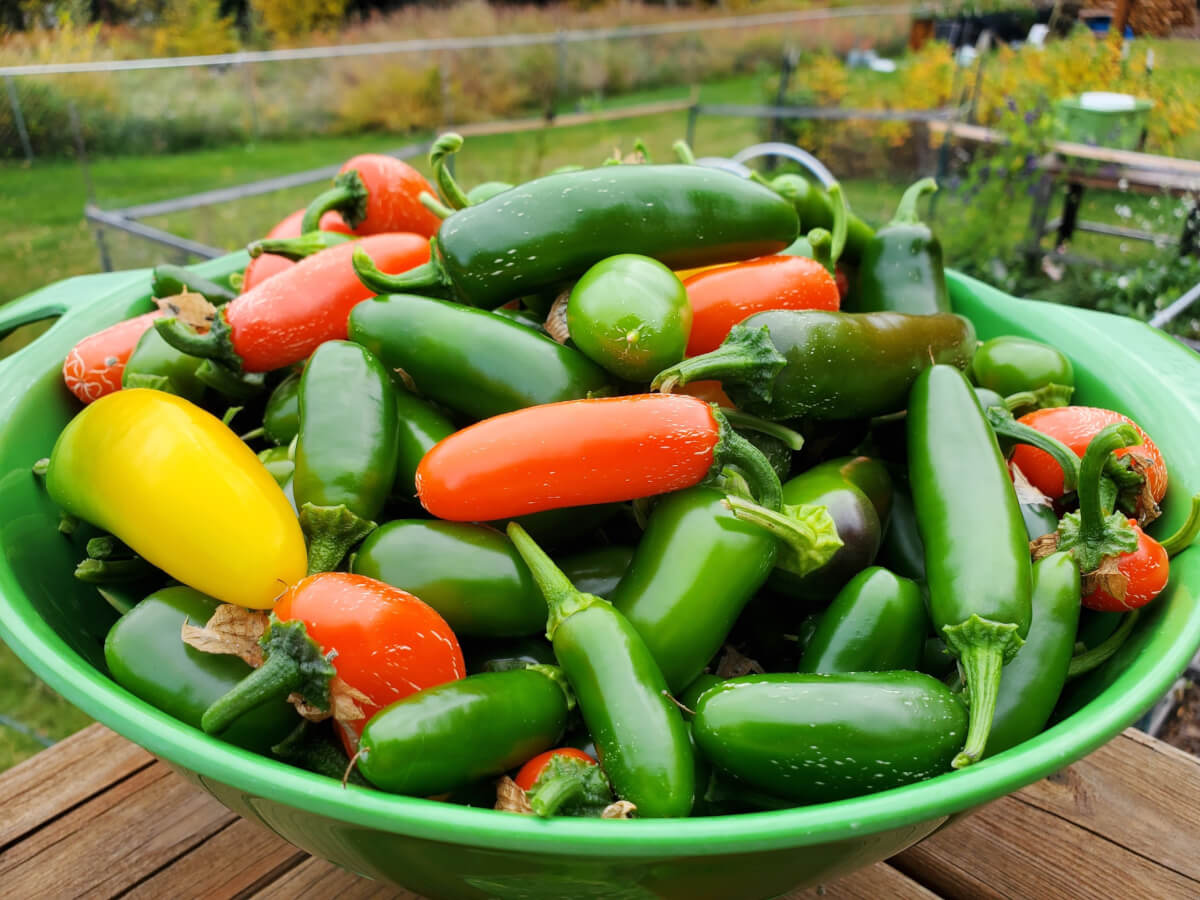Organic Vs. Synthetic Fertilizers: Which Is Best for Nurturing Healthy Pepper Plants?
In the realm of nurturing healthy and balanced pepper plants, the choice between artificial and organic plant foods stands as a crucial choice with significant ramifications. While both options aim to give crucial nutrients to sustain plant growth, the nuances of their influence on the dirt, plant health and wellness, and the environment trigger a dispute that echoes throughout the horticulture neighborhood. Understanding the distinctive benefits and prospective mistakes of each fertilizer kind is critical for pepper cultivators seeking to maximize their returns while preserving an eco-conscious and lasting strategy.
Benefits of Organic Plant Foods
Organic plant foods offer an environmentally-friendly and sustainable strategy to nourishing pepper plants, giving necessary nutrients without the use of artificial chemicals. These natural plant foods are obtained from natural sources such as garden compost, manure, bone meal, and algae, promoting dirt health and biodiversity. Unlike synthetic fertilizers, organic alternatives release nutrients gradually, making sure a well balanced and steady supply for pepper plants to grow.
One considerable advantage of organic fertilizers is their capacity to improve dirt structure and water retention. By improving dirt health, organic plant foods advertise advantageous microbial task, which assists in nutrient uptake by pepper plants. Additionally, organic plant foods lower the risk of chemical run-off, safeguarding water resources from air pollution and safeguarding the atmosphere.
Moreover, natural plant foods contribute to long-term soil fertility by promoting the development of helpful dirt microorganisms. These organisms help break down organic matter, releasing nutrients in a type that is quickly obtainable to pepper plants. best fertilizers for peppers. By cultivating a healthy dirt community, natural plant foods sustain lasting pepper growing methods that benefit both plants and the setting
Disadvantages of Artificial Fertilizers
Artificial plant foods, as opposed to their natural equivalents, posture numerous disadvantages when used to nurture pepper plants, influencing both plant wellness and ecological sustainability. One significant disadvantage of artificial fertilizers is their tendency to leach nutrients from the dirt promptly. This quick leaching can cause vitamins and mineral discrepancies in the soil, causing plants to struggle with shortages or poisonings. Additionally, artificial plant foods can hurt useful soil organisms, such as earthworms and beneficial microorganisms, interrupting the soil ecosystem's equilibrium.
Furthermore, the overuse of synthetic plant foods can contribute to water air pollution. Excess fertilizers not absorbed by plants can get rid of into water bodies, leading to eutrophication, where algae blossoms deplete oxygen degrees in the water, hurting aquatic life. Moreover, synthetic plant foods are usually derived from non-renewable sources, such as nonrenewable fuel sources, adding to carbon discharges and ecological destruction during their manufacturing.
Nutrient Absorption Contrast
Effective nutrient absorption plays a critical function in the overall wellness and growth of pepper plants. When contrasting synthetic and organic plant foods in terms of nutrient absorption, organic plant foods have the advantage of supplying a more balanced and slow-release resource of nutrients (best fertilizers for peppers). Organic fertilizers include a selection of macro and micronutrients that are not only valuable for the plants however additionally promote healthy dirt microbial task, which assists in nutrient uptake. On the other hand, synthetic plant foods usually provide a fast launch of nutrients, which can lead to leaching and runoff, leading to lower nutrient absorption prices by the plants.
Additionally, organic fertilizers enhance soil structure and water retention capacity, allowing pepper plants to access nutrients extra effectively. This see this website enhanced soil high quality helps with root development, allowing much better nutrient absorption. Synthetic fertilizers, although at first enhancing plant development as a result of their high nutrient focus, may hinder long-term nutrient absorption by derogatory dirt health and wellness in time.
Environmental Impact Factors To Consider

On the other hand, artificial fertilizers, although often even i was reading this more instantly readily available and concentrated to plants, can have detrimental impacts on the environment otherwise applied appropriately (best fertilizers for peppers). Their production needs high power inputs, causing greenhouse gas emissions and adding to environment webpage modification. In addition, the overflow of excess artificial fertilizers can pollute water resources, resulting in eutrophication and damaging aquatic environments.
Best Fertilizer Practices for Peppers
To achieve this, it is important to follow best fertilizer techniques customized to the details needs of pepper plants. One critical method is to carry out a soil examination prior to using any type of fertilizers.
Another important technique is to feed pepper plants at the ideal time. Normally, peppers take advantage of receiving fertilizer at growing and after that once again when they start to blossom. Over-fertilizing can cause nutrition imbalances and damage the plants, so it is essential to comply with recommended application prices.
Additionally, picking a balanced plant food with an NPK ratio that fits pepper plants' needs is essential. Inevitably, combining synthetic and natural fertilizers deliberately can help support healthy pepper plants while reducing ecological impact.
Final Thought

Organic plant foods supply an environmentally-friendly and lasting strategy to nourishing pepper plants, supplying essential nutrients without the use of artificial chemicals. Unlike artificial plant foods, organic choices launch nutrients gradually, guaranteeing a balanced and stable supply for pepper plants to prosper.
Artificial fertilizers, in contrast to their organic equivalents, posture numerous disadvantages when used to nourish pepper plants, affecting both plant wellness and ecological sustainability. When contrasting natural and artificial fertilizers in terms of nutrient absorption, organic fertilizers have the advantage of offering a much more well balanced and slow-release resource of nutrients.Furthermore, organic fertilizers enhance soil framework and water retention ability, allowing pepper plants to access nutrients more effectively.